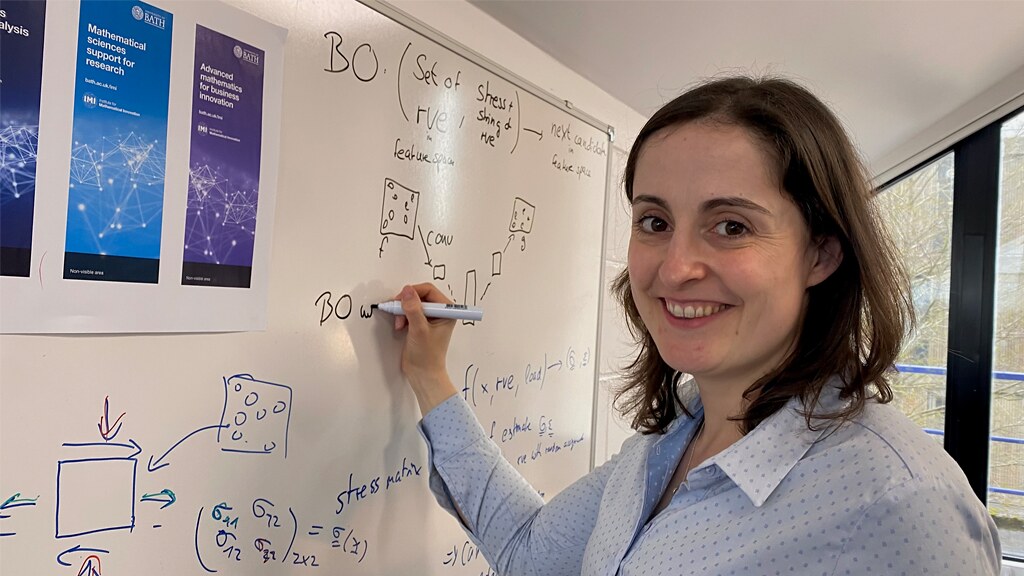Using mathematics to solve real-world problems
An applied mathematician and data analysis expert, Beate works collaboratively with researchers from a range of disciplines from across the University to push the boundaries of science and solve real-world problems.
Her role is an unusual one focusing on bringing state-of-the-art mathematical methods to new disciplinary contexts. As a result, Beate’s work within the IMI, a pioneering Institute that leads mathematically grounded modelling and data analytics research, is diverse and far-reaching.
From contributing to our knowledge about the growth of galaxies and black holes with the Astrophysics Group to developing a machine learning tool to help clinicians identify and classify hip fractures more efficiently with the Department of Mechanical Engineering – each new project comes with its own data analytical challenges.
Together, by applying our multidisciplinary knowledge, we are pushing science and transforming innovation. I can literally see the impact which is super exciting!
I work in so many different areas and it’s always fascinating.
I have been fortunate to be exposed to many different types of research which have enabled me to understand that what really fascinates me are the insights one can draw from data and the corresponding impact rather than the actual tools used.
Funded by the Medical Research Council (MRC) to improve the day-to-day lives of people living with chronic pain, Beate is currently part of an interdisciplinary team partnering with the Departments of Psychology, Health and Computer Science that responded to a ‘Call to Arms’ on the theme of “Industrial challenges: The Nexus of Healthcare, Sustainability and Digital.”
With a focus on uncovering the psychosocial mechanisms underpinning chronic pain, the team’s overarching goal is to create a clearer account of how, and in what way, psychosocial factors affect pain. Through their research, they will better understand what makes chronic pain start, keep going, get better or get worse, will help identify ways to prevent chronic pain from happening and reduce the negative effects that pain can have on people’s lives.
Using mathematics to solve real-world problems feels more like something I do for fun rather than a job because I just love what I do.
I love mathematics. I love learning. I love people. And I love science. But most of all I love it when all these four things come together to make a difference.
Beate, whose research interests include machine learning, hypothesis testing, Bayesian statistics, and optimal experimental design fell in love with Maths at an early age.
“I always had a love of mathematics from the first day of school”
Funnily enough, I liked the concept of mathematics more than numbers. For me, mathematics was like solving riddles and provided me with a unique way of viewing and making sense of the world.
Before joining Bath, Beate worked as a Senior Research Statistician on the design and analysis of experiments for AstraZeneca - a large pharmaceutical company. Her background is in mathematical statistics in which she completed a PhD at University College London at the Department for Statistical Science on improving our understanding of community structure in large networks.
Studying and working in a sector that is typically male-dominated, Beate comments:
Growing up with two sisters and a brother, my father never told us there was a difference between boys and girls. Instead, he instilled in us an understanding that we can achieve what we want with hard work. Whenever people tell me I cannot do something I take it as a challenge rather than a dead-end.
